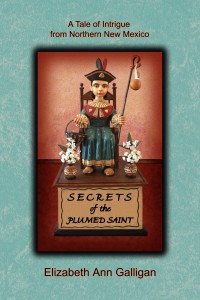Next to the originator of a good sentence is the first quoter of it. I hate quotations. Tell me what you know.
~ Emerson
What better writing advice than that given by a published author?
In the course of interviewing SouthWest Writers’ authors for this website, one of the questions I asked was, “What advice would you give to beginning or discouraged writers?” Here are the answers compiled from ten of the interviews posted in 2015.
The publishing world is competitive, but writing shouldn’t be. No two writers will ever tell a story exactly the same way. Don’t be afraid to help those around you, or to learn from others. If you’re not improving and having fun as a writer, you may as well move on to something else. One of my characters once told me, “If you ain’t havin’ fun, you’re just wastin’ space.” That has become my motto. ~ Sarah Baker
Bumblebee physiology is inconsistent with flight, so instead of flapping their wings up and down like a bird, they wave them in a figure eight pattern. Unwilling to walk from flower to flower, they achieve their goal by working with the laws of physics to find a way to fly. It’s the same with writing: if one avenue doesn’t pan out, find another. ~ Olive Balla
Writing can be a box with rigid structures that are demanding and restrictive to one’s creative nature. On the other hand, writing can be as fluid as the ink that flows unto the paper. It can become a vehicle that opens up doors to new worlds of possibility and to dreams that have never been expressed. My hope is that every writer who feels the need for more freedom chooses the latter. ~ S.S. Bazinet
Don’t wait until it’s perfect, because it’ll never happen. Obviously, it’s necessary to do a thorough job editing, but it’s too easy to get hung up on minor things and never get the job done. ~ Susan C. Cooper
Just begin. Trust yourself and your words. Forget many of the things you learned about “rules.” As Mark David Gerson suggests in The Voice of the Muse, there are 13 rules. The first is: There are no rules. The story exists and you are the vehicle which carries it. ~ Elizabeth Ann Galligan
Discouragement is part of the writing game. So is perseverance. And perseverance will eventually win (think Thomas Edison). My advice: Keep honing your craft. Join a critique group and learn to take criticism; after all, they’re readers, and writers need readers. Realize your writing isn’t sacred and not to be changed in any way; remember, you can’t see mistakes in your own writing—you’re too close. ~ Larry Greenly
Don’t give up. Find publishers who’ve issued books similar to yours. Develop a great query to send them, one that will get their interest enough that they’ll even read your submission. Create a first page that grabs them. ~ Joyce Hertzoff
People who write are called writers. People who wait are called waiters. I’d advise you to write every day, if only for the sheer pleasure of it. Don’t worry about the Great American Novel, etc. Enjoy what you do! Or find something else to do, life is too short. ~ Robert Kidera
Learn to reject rejection. Get used to the idea that there is going to be a lot of rejection along the way. The secret is to never give up. If one person tells you no, ask someone else. Someone, somewhere, sometime will say yes. Move on to the next person. Someone is waiting to say yes. ~ Gale O’Brien
Set both weekly and monthly goals/deadlines for yourself. Write them down and work diligently toward achieving them. Buy an appointment book and schedule time for writing, rewriting and research. Your “great expectations” will be easier to achieve when you have established in writing what they are. ~ Shirley Raye Redmond
 KL Wagoner (writing as Cate Macabe) is the author of This New Mountain: a memoir of AJ Jackson, private investigator, repossessor, and grandmother. She has a new speculative fiction blog at klwagoner.com and writes about memoir at ThisNewMountain.com.
KL Wagoner (writing as Cate Macabe) is the author of This New Mountain: a memoir of AJ Jackson, private investigator, repossessor, and grandmother. She has a new speculative fiction blog at klwagoner.com and writes about memoir at ThisNewMountain.com.
Image “Light at End of Tunnel” courtesy of lkunl / FreeDigitalPhotos.net



